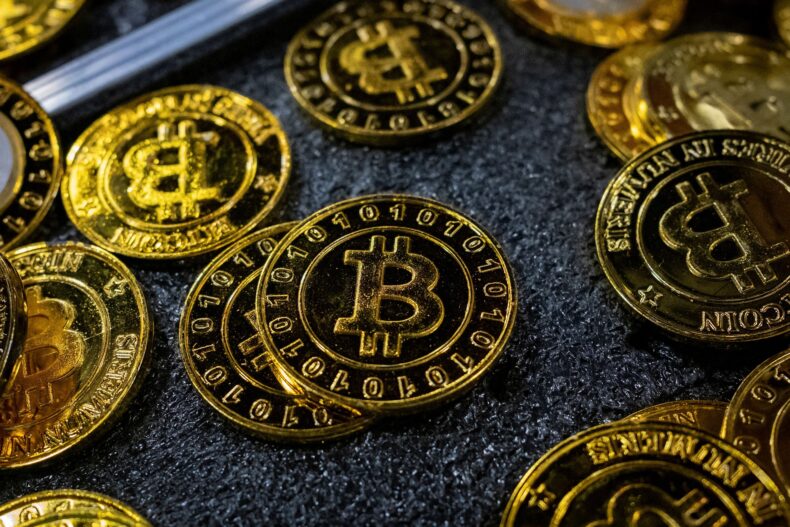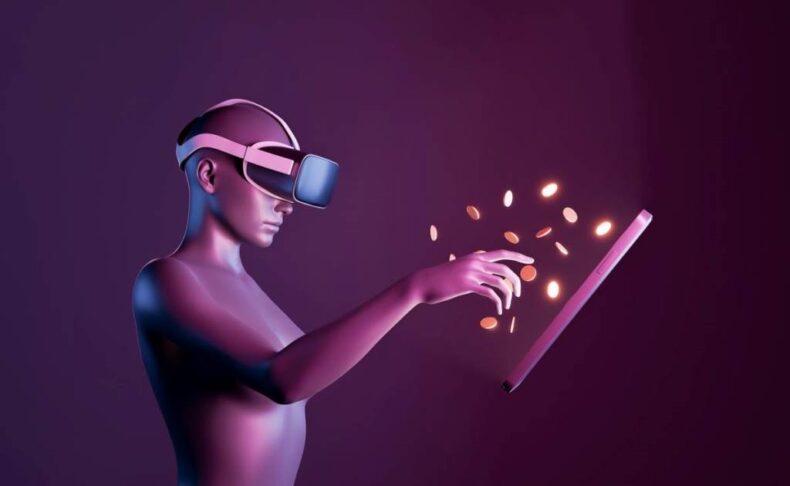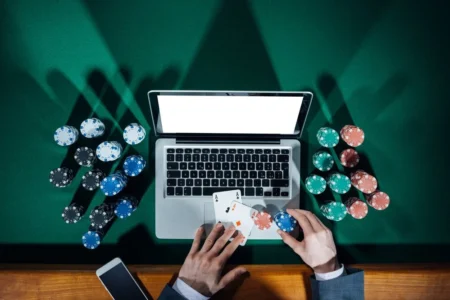Virtual economies inside video games aren’t just fictional systems for player engagement. They replicate the patterns of real-world markets, reflecting how people behave when making purchases, saving money, or chasing high-value assets.
What starts as gameplay often evolves into a complex financial simulation—one that mirrors real-life consumer decisions in surprising ways.
Key Highlights:
- Player behaviors in video games reflect real-life consumer psychology.
- Virtual items and currencies can carry real-world monetary value.
- Developers use economic systems to drive in-game spending.
- Gaming economies face challenges like inflation and fraud.
- Some virtual markets closely resemble financial investment systems.
- Real-money gambling principles are often embedded in virtual purchases.
Video Game Spending Feels Like Real-Life Spending

In-game purchases are no longer small, casual decisions. Players now treat virtual assets with the same caution, urgency, and ambition they apply to their real-life finances. Buying a cosmetic item, unlocking a character skin, or acquiring rare weapons now involves calculated choices based on value, timing, and exclusivity.
You’re no longer just spending for entertainment. You’re making financial moves inside a digital environment that mimics consumer capitalism. The more time you invest, the more emotionally tied you become to your virtual assets—just like you would with a high-end gadget, designer item, or stock investment.
Gamers often compare item prices, track offers, watch for discounts, and weigh risk versus reward. In that sense, gaming economies reflect the same decision-making process shoppers use on e-commerce platforms. Whether it’s a sword upgrade or a virtual skin, every digital item competes for wallet space—just like real-world products.
Real-World Gambling Models Show Up in Virtual Economies
Many modern games use gambling-inspired features to boost player engagement. Loot boxes, randomized rewards, and mystery drops trigger the same brain mechanisms as slot machines or roulette.
- Random reward mechanics: Players pay for a chance to receive a rare item without knowing the outcome in advance.
- Limited-time events: These mirror flash sales or casino bonus offers, where urgency drives fast spending.
- Progress bars and visual triggers: Flashy animations and sounds reinforce the feeling of “almost winning,” nudging players to try again.
These systems parallel real-money gambling behaviors seen on platforms like the best online casinos. Whether inside a game or on a legal casino site, users chase high-reward outcomes using real money for virtual or symbolic gain. In both cases, the systems are engineered to maximize engagement through psychological hooks.
Why Virtual Currencies Gain Real-World Worth

In-game currencies aren’t just a shortcut to gameplay benefits. They represent a parallel economy where players translate real money into digital value. That value becomes meaningful through scarcity, demand, and trade potential.
Let’s break it down:
- V-Bucks (Fortnite): Used for skins, emotes, and gear—these purchases create social standing.
- Robux (Roblox): Power players buy upgrades, game passes, and even develop their own monetized experiences.
- Gold (World of Warcraft): Serves as a long-term currency used for buying rare goods and services in-game.
The value of these currencies rises when developers tie them to exclusive or limited-time content. It’s not just about access—it’s about influence, customization, and pride. Players feel a sense of ownership, which drives more purchases and emotional connection.
On top of that, black markets and third-party platforms now allow item trading or account selling, turning some players into virtual entrepreneurs. In extreme cases, players make real income from digital items, treating them like financial assets.
Developers Shape Player Behavior With Economic Control
Video game companies design virtual economies to steer how players spend. They set the price of digital goods, control how often rare items drop, and regulate availability. This level of control would be illegal in a traditional economy—but in virtual spaces, it’s part of the design.
Developers influence the market by:
- Introducing artificial scarcity to boost value.
- Rotating in-game shops to create urgency.
- Bundling valuable items with less-desirable ones.
- Rebalancing currency rewards to stretch the grind.
By manipulating economic variables, developers can push players toward specific purchases or behaviors. For example, increasing grind time makes buying shortcuts more appealing. Offering “bonus currency” with larger purchases rewards spending more upfront—just like bulk discounts in real-life retail.
Lessons Players Learn from Virtual Economies

Despite the manipulative design, players often gain real-world financial insights from interacting with gaming markets. A good in-game economy can teach essential principles of:
- Budgeting: Managing limited virtual currency teaches restraint.
- Value comparison: Players learn to evaluate worth before spending.
- Investing: Buying and trading rare items for profit builds strategic thinking.
- Saving: Delaying gratification for better rewards fosters long-term discipline.
Kids and teens especially benefit from these lessons. Games provide a no-risk setting for experimenting with economic behavior. Over time, those patterns influence how they approach spending, saving, and investment in the real world.
When Gaming Markets Mirror Stock Markets
Some games now resemble financial investment platforms. Think of them as simplified versions of trading floors, where players speculate on prices, hold onto assets, and flip rare finds for profit.
- CS:GO Skins: Rare cosmetic items gain or lose value based on popularity and scarcity.
- EVE Online Ships: Digital vessels worth thousands of dollars can be destroyed, traded, or auctioned.
- NFT Integration: Blockchain-based games allow full ownership of virtual assets, with real-world resale value.
Players who study price trends, track demand, and flip assets often treat the game like a part-time job. These economies reward those who understand market forces, act strategically, and stay informed. It’s real-world economics, wrapped in pixels and avatars.
Regulation Isn’t Keeping Up With Digital Markets
Virtual economies don’t follow the same rules as national economies. There are no banking systems, credit protections, or legal standards. This creates challenges around fraud, security, and ethical design.
Big issues include:
- Item theft and scamming: Account breaches can wipe out thousands in virtual assets.
- Underage spending: Kids rack up huge bills through microtransactions.
- Lack of refund policies: Most in-game purchases are non-refundable.
- Addiction concerns: The structure of many gaming economies encourages compulsive spending.
While some countries have introduced laws to regulate loot boxes or enforce transparency, most markets remain unregulated. As virtual economies grow in size and importance, pressure will increase for developers to follow stricter standards, especially around gambling-style mechanics and user protections.
Future of Virtual Economies

We’re just scratching the surface. The next decade will bring even tighter connections between virtual and real economies. Expect to see:
- Wider crypto adoption in games.
- Real-money auctions integrated into gameplay.
- Cross-platform item trading.
- Virtual land speculation inside metaverse-style games.
As digital ownership becomes more normalized, players will treat their inventories with the same seriousness as a stock portfolio. The line between game and economy will continue to blur.
Final Thoughts
You may be playing a game, but your brain doesn’t treat it as fiction. Every time you grind for coins, pay for skins, or try to hit the jackpot in a loot box, you’re operating within a system that echoes real-world economics.
Virtual economies offer entertainment, status, and customization—but they also educate, condition, and occasionally exploit. Knowing how and why virtual spending works helps players avoid manipulation, recognize patterns, and even grow sharper about their own financial habits beyond the game.













